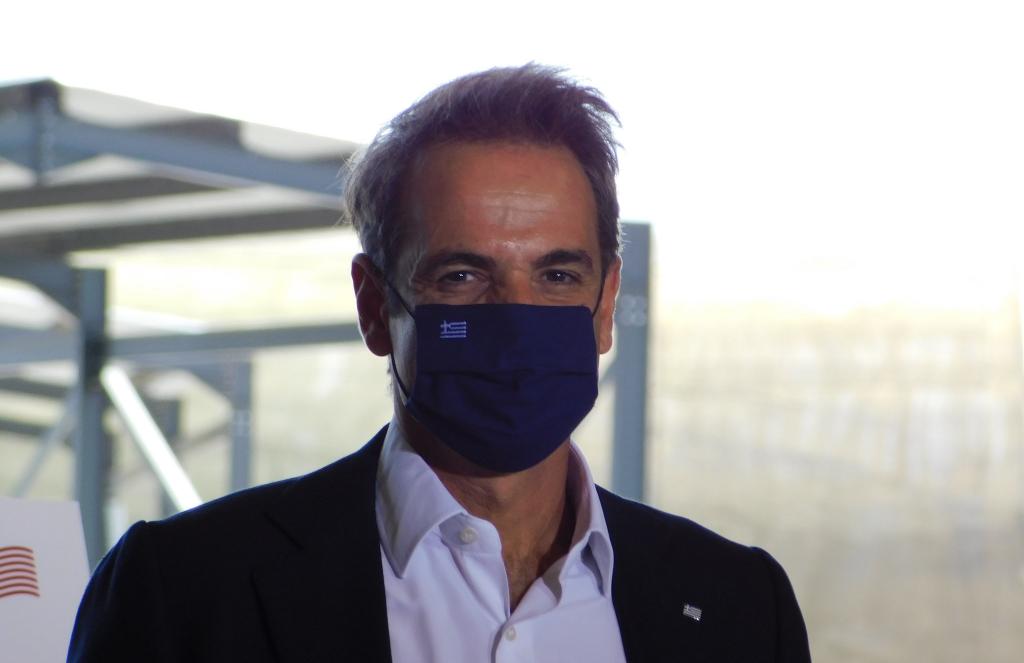Thessaloniki gets ready for its metro launch in November
The underground rapid transit lines have been under construction for almost two decades due to various project delays
 TheMayor.EU logo
TheMayor.EU logo 
mitsotakis, Source: Kyriakos Mitsotakis at 115 Combat Wing by Yanni Koutsomitis on Flickr (CC BY-NC-SA 2.0)
The lockdown will come into effect on Saturday, 7 November
Earlier today, Greek Prime Minister Kyriakos Mitsotakis announced that the country will be going into lockdown on Saturday 7 November. The deteriorating epidemiological situation in Greece has made the decision unavoidable as officials seek to stem the tide of new COVID-19 cases.
In a televised address to the nation, the Greek Prime Minister explained that the country is heading into its 2nd national lockdown. The measures that will be in effect starting 7 November will be similar to the ones introduced in the first months of the pandemic, in March and April.
The new lockdown will drag on until 30 November as authorities aim to limit the spread of COVID-19 which has run rampant across Greece over the last few months with more and more cases being registered each day. The decision comes after a new record was set with 2,646 cases being confirmed on Wednesday.
According to Mitsotakis, he can not take the responsibility to endanger more human lives – which has prompted the government to take immediate action. The lockdown that will be introduced, however, will have a few similarities to its first iteration from earlier this year.
Most notable is the fact that kindergartens, primary schools and special educational institutions will remain open over the next few weeks. High schools and universities, however, will be forced into mandatory distance learning. Masks will also become mandatory at all times – both inside and outside, while supermarkets and pharmacies will remain open.
Greece was among the countries that dealt the best with COVID-19 during the first wave of the pandemic but the eagerness of authorities to reopen the economy and their hesitant approach to imposing tough measures have taken their toll over the last few months. By imposing a nationwide lockdown and by appealing to the better nature of Greeks, PM Kyriakos Mitsotakis hopes that his country will once again quickly deal with the virus which will allow it to once again return to normal life.

The underground rapid transit lines have been under construction for almost two decades due to various project delays

Now you can get your wine in Talence by paying directly in Bitcoin

That’s because the state has to spend money on updating the railway infrastructure rather than subsidizing the cost of the popular pass

Rethinking renewable energy sources for the urban landscape

The examples, compiled by Beyond Fossil Fuels, can inform and inspire communities and entrepreneurs that still feel trepidation at the prospect of energy transition

Now you can get your wine in Talence by paying directly in Bitcoin

The 10th European Conference on Sustainable Cities and Towns (ESCT) sets the stage for stronger cooperation between the EU, national and local level to fast track Europe's transition to climate neutrality.

At least, that’s the promise made by the mayor of Paris, Anne Hidalgo

The underground rapid transit lines have been under construction for almost two decades due to various project delays

At least, that’s the promise made by the mayor of Paris, Anne Hidalgo

Hostal de Pinós is located in the geographical centre of the autonomous region

Despite its church-y name, the district has long been known as the hangout spot for the artsy crowds

Urban dwellers across the EU are having a say in making their surroundings friendlier to people and the environment.

Forests in the EU can help green the European construction industry and bolster a continent-wide push for architectural improvements.

Apply by 10 November and do your part for the transformation of European public spaces

An interview with the Mayor of a Polish city that seeks to reinvent itself

An interview with the newly elected ICLEI President and Mayor of Malmö

A conversation with the Mayor of Lisbon about the spirit and dimensions of innovation present in the Portuguese capital














